Piolets d'Or Announces the "Significant Ascents" of 2023
This list of 68 climbs is effectively a "long list" used to select nominees of the prestigious alpine award.
Jessica Faulkner explains how Skateistan designs gender-inclusive programs in their skate schools and classrooms to empower underprivileged children around the globe.

Last week, The Outdoor Journal introduced Skateistan, an award-winning international non-profit organization that provides a creative blend of skateboarding instruction and educational programs to empower children to change the trajectory of their lives and their communities. Skateistan's programs are focused on underprivileged children, especially young girls and children living with disabilities in Afghanistan, Cambodia and South Africa - with over 50% female participation. Your donation can help to change these children’s stories, too.
In this installment, Jessica Faulkner, the Communications Manager at Skateistan’s Berlin headquarters, discusses her role within the organization, how Skateistan builds strong relationships within communities despite cultural differences, designing gender-inclusive programs to encourage young girls to skate, developing classroom programs to focus on life skills like resilience and determination, and the best way that readers can get involved and become a Citizen of Skateistan themselves. (Listen to the full conversation).
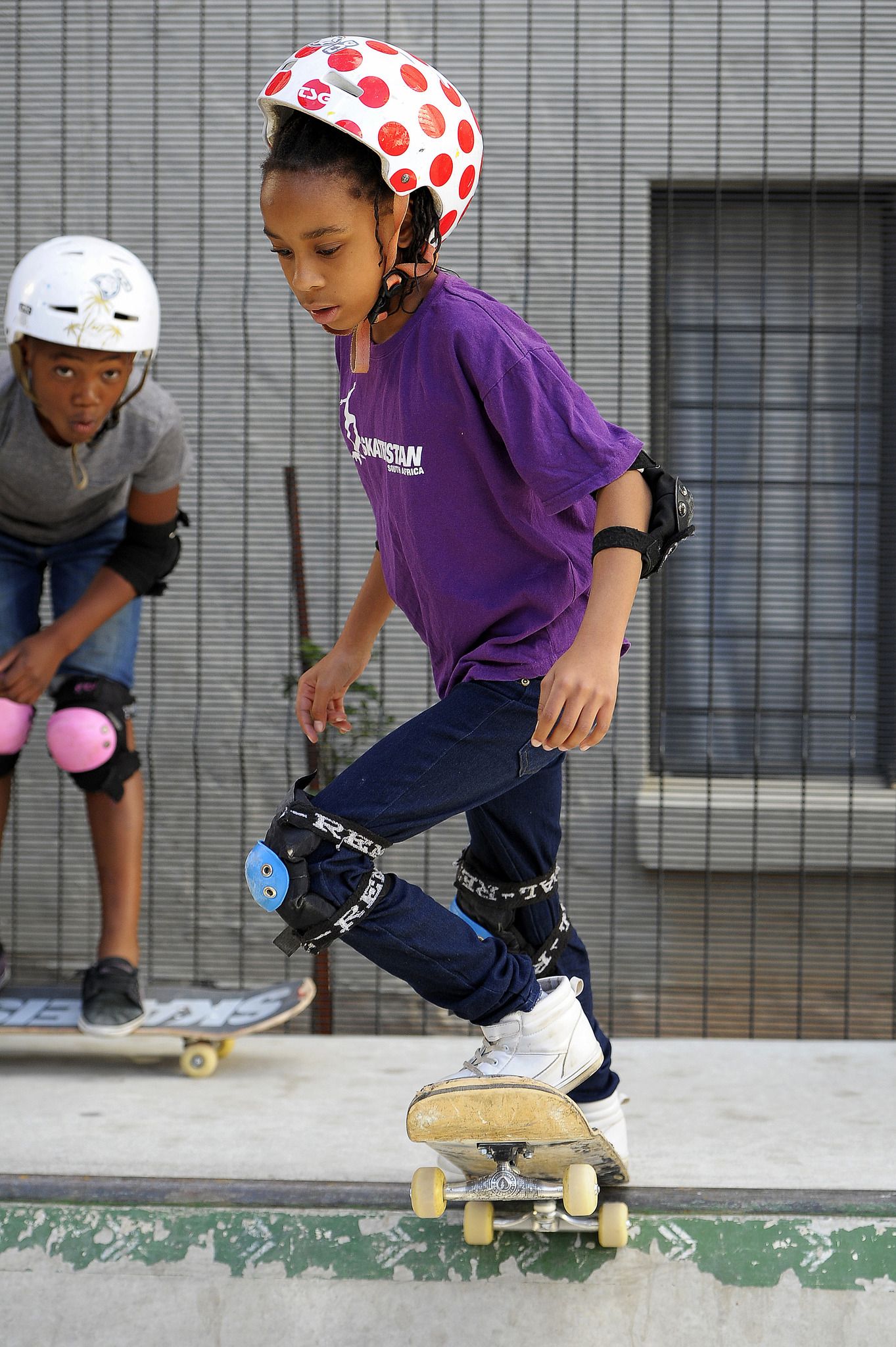
TOJ: How did you get involved with Skateistan?
Faulkner: For me personally, I've been working with Skateistan for just over a year now. My background is in international development communications. I had moved to Berlin after traveling for a year. I was looking for a job and I saw this one come up and I just thought, "That sounds like the most amazing organization with such a cool message." And so my journey started there.
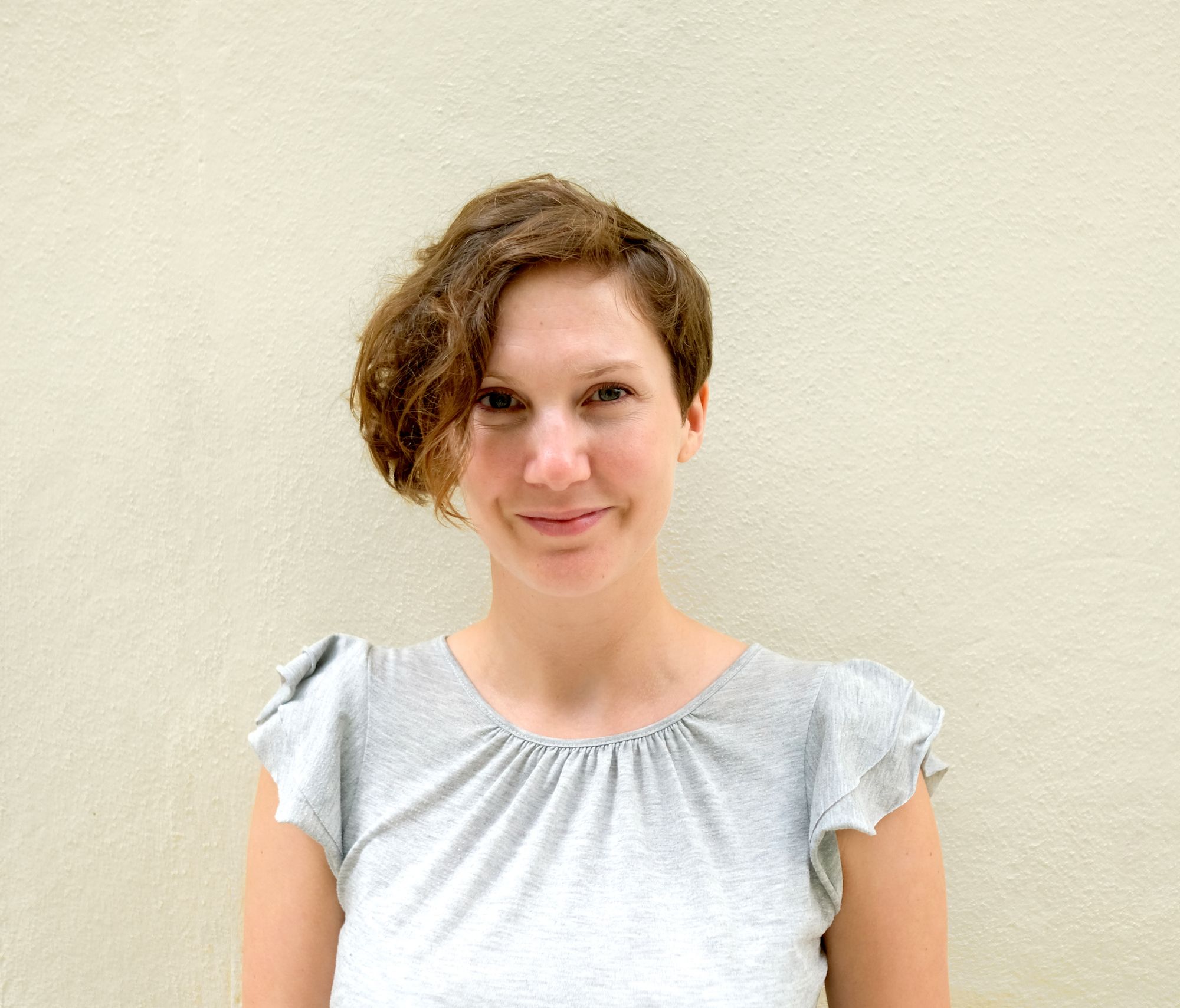
TOJ: What is your individual role within the organization?
Faulkner: I'm the Communications Manager, so I head up our communications team, which is small but perfectly formed. We have a comms officer and a designer as well. We basically look after the things that people hear and see about Skateistan in the outside world.
TOJ: Have you had a chance to visit any of the facilities in Kabul or Cambodia or South Africa?
Faulkner: I've been fortunate enough to visit three of our skate schools since I started working here. I went to Johannesburg in October last year and spent around 10 days at the skate school there. And earlier this year in February I was in Afghanistan, visiting the team in Kabul and Mazar-e-Sharif.
https://www.youtube.com/watch?v=wV-rZzlSP8c&list=PLp6TADc2ZT3CNs1ISxjk5ga500DtPTGE2&index=7&t=0s
TOJ: How did those trips impact your perspective on living in Berlin compared to the living conditions in Cambodia, South Africa and Afghanistan?

Faulkner: A trip to a Skateistan skate school is a very special experience and it definitely changes the way that you see your day to day job. it gives you a huge sense of joy to see kids having so much fun and being in such a safe space and learning so much on a day to day basis. Seeing girls skating around in Kabul is one of the most special things I've ever seen. I was also lucky enough to join a soccer game with them, which is pretty cool. There's a huge surge of optimism that people get when they visit the schools because they see firsthand that this crazy idea is actually working super well.
It’s amazing to me the way the staff is so responsive to local needs. Whilst we follow the same curriculum in each school, they're adapting to what the kids need and then reacting to what their communities are telling them. That’s exciting to see on a day to day basis. Particularly in Afghanistan, but also in the other locations, there are plenty of challenges as well. There is an immense sense of responsibility that you feel when you visit the schools to maintain what we do, because, for a lot of those children, it is the only place where they feel safe; it’s the only place where they can really express themselves freely, where they can have that amount of fun.
“They're learning about breaking down social barriers around their own role in society and how to build bridges between different groups of people.”
The quality of the children’s opportunity is so high. They're learning to skateboard with all of the important life lessons that come with that, like what to do when you fail at something, what to do when you fall off, what to do when something is immensely challenging. They're also learning about breaking down social barriers around their own role in society and how to build bridges between different groups of people, different genders, different ethnicities. There is a real sense of responsibility that we have to make it work because it's the only opportunity that they have a lot of the time.
https://www.youtube.com/watch?v=YLb-ABe-aVE&t=1s
TOJ: What does it mean to be a “Citizen of Skateistan"?
Faulkner: The citizens of Skateistan make up a global community of people who share our vision of empowering children through skateboarding and education. To join the citizens, it’s really straightforward. It costs $10 a month and then you're part of that community. The benefits of that are first of all that you get loads of exclusive information from us, like exclusive videos from our skate schools about what's happening on a day to day basis. But also there’s the knowledge that you're really helping to put Skateistan on a stable footing. Any NGO will tell you that attracting funding is always a big job and we have a lot of amazing friends who help us out with that. But the citizens are really the bedrock of support because we know that we can rely on them. We know how much money comes in each month so that we can make really cool plans for the future. The citizens community also includes a few famous faces like Tony Hawk, Jamie Thomas, and Sky Brown as a few examples and they are just incredible skateboarding legends who help us to spread the word in a way that we as a small NGO just couldn't do on our own.
TOJ: So if I were to donate a $10 per month, is that sponsoring one specific child through the year or is it funding the facilities and programs in general?
Faulkner: It's not a sponsorship of one child on their own, but it goes towards everything that Skateistan does. We're always happy to share what we've been doing with the money that people kindly donate to us and also just what the donations can do. For example, $20 can pay for two sessions of Skate and Create in Cambodia and that means two 120-minute sessions of creative education and skateboarding per child. We're really happy to be transparent about how donations benefit our students.
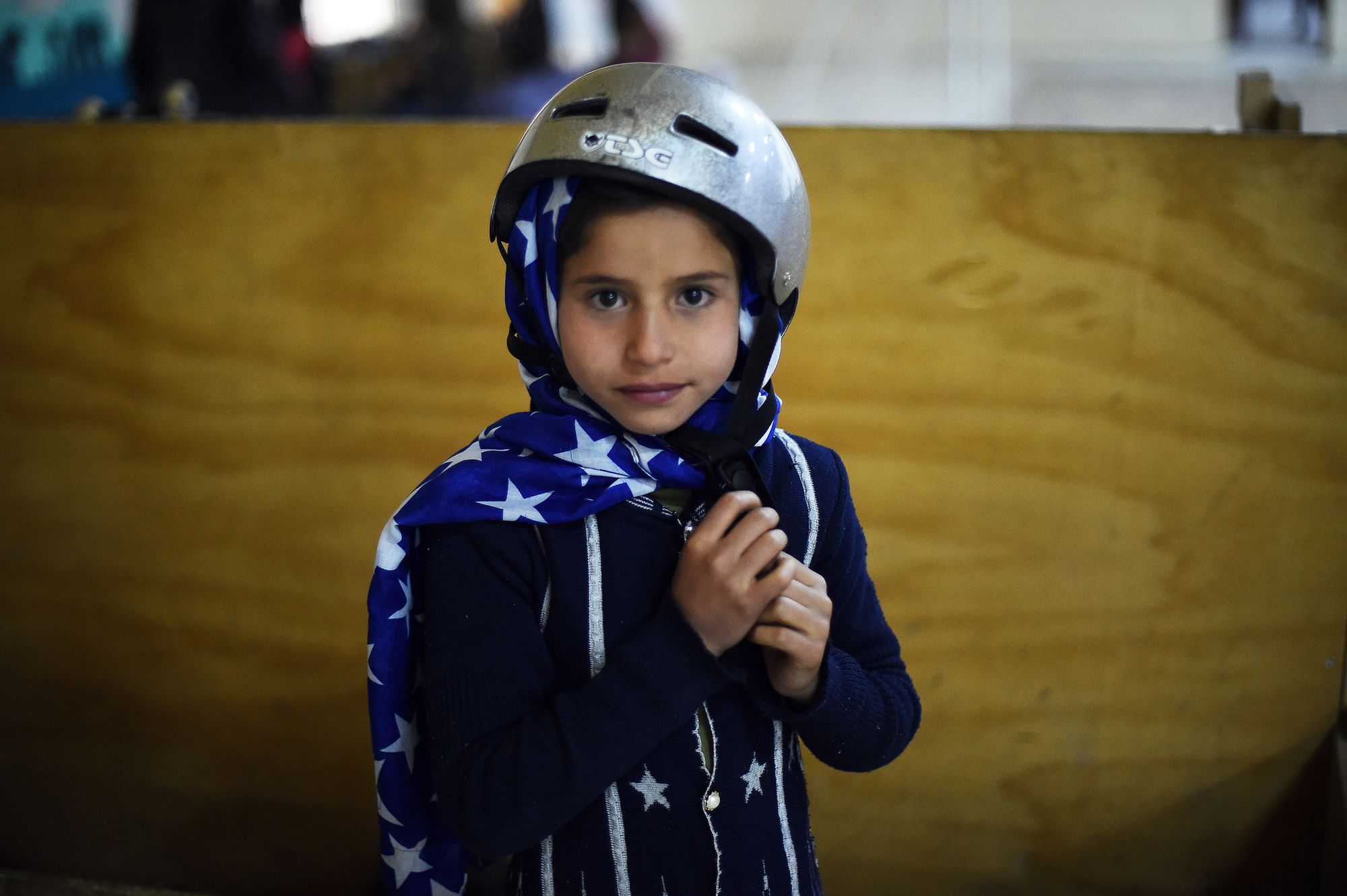
The Citizens of Skateistan is a global community of students, staff, skaters, and supporters who share the dream of empowering and educating youth through skateboarding. By donating $10 or more a month you become a Citizen and help make it possible for thousands of youth to attend Skateistan programs worldwide.
TOJ: You just mentioned Sky Brown who rides for Almost skateboards and helped design one of their boards where a portion of the proceeds go to Skateistan. What does it mean to Skateistan to have Sky Brown as an ambassador?
Faulkner: She's an amazing friend for us and she's actually been to our skate school in Cambodia. When we moved to a new location in Phnom Penh in 2018, we were lucky enough to have Sky attend the opening and skate with some of our students, which was just super inspiring to them to see what's possible if you put your mind to it. Sky’s board with Almost has been an incredible collaboration. It’s already brought in twenty thousand dollars which can go a really long way in our skate schools.
https://www.youtube.com/watch?v=vWPrpNEw8no
TOJ: What does it mean to have Tony Hawk on the Global Advisory Board?
“Tony Hawk has been a fantastic friend to the organization for a great many years now.”
Faulkner: It means a huge amount! Tony has been a fantastic friend to the organization for a great many years now. There's a lot of things that we couldn't do without supporters like Tony. He has such an incredible global reach that he can spread a message in a way that we simply can't do on our own. Also, he has so much experience with the Tony Hawk Foundation which means we have an opportunity to share ideas. He's been an amazing advocate for what we're trying to do with the power of skateboarding in areas where you might not think it's a very obvious tool. Tony has this vision for how we can empower children all over the world and how skateboarding can do incredible things for girls empowerment.
https://www.youtube.com/watch?v=RqL4VsEyU-k&list=PLp6TADc2ZT3CNs1ISxjk5ga500DtPTGE2&index=6&t=0s
TOJ: Do most of the people who work for the organization come from a pro skating background?
Faulkner: It's a little bit of a mix. At the office here in Berlin, more than half are experienced skateboarders and I will be completely honest here and say that I wasn't, but I've now had three whole lessons! (laughs). Obviously, all the educators have to be skateboarders and a lot of staff who aren't skating at the beginning end up skating because you're working right next to a skate park and it's really inspiring to see people rolling around all the time. One of the things that happens in our skate schools is that some of our staff actually come through the ranks of our skate schools by starting out as students. It’s a relatively common path to be a student and then a youth leader, which is like an older student who helps out with younger students in health science classes and then to goes on to being an educator in the skate park. We really value that progression. We think that that's a really good way of investing in our local community.
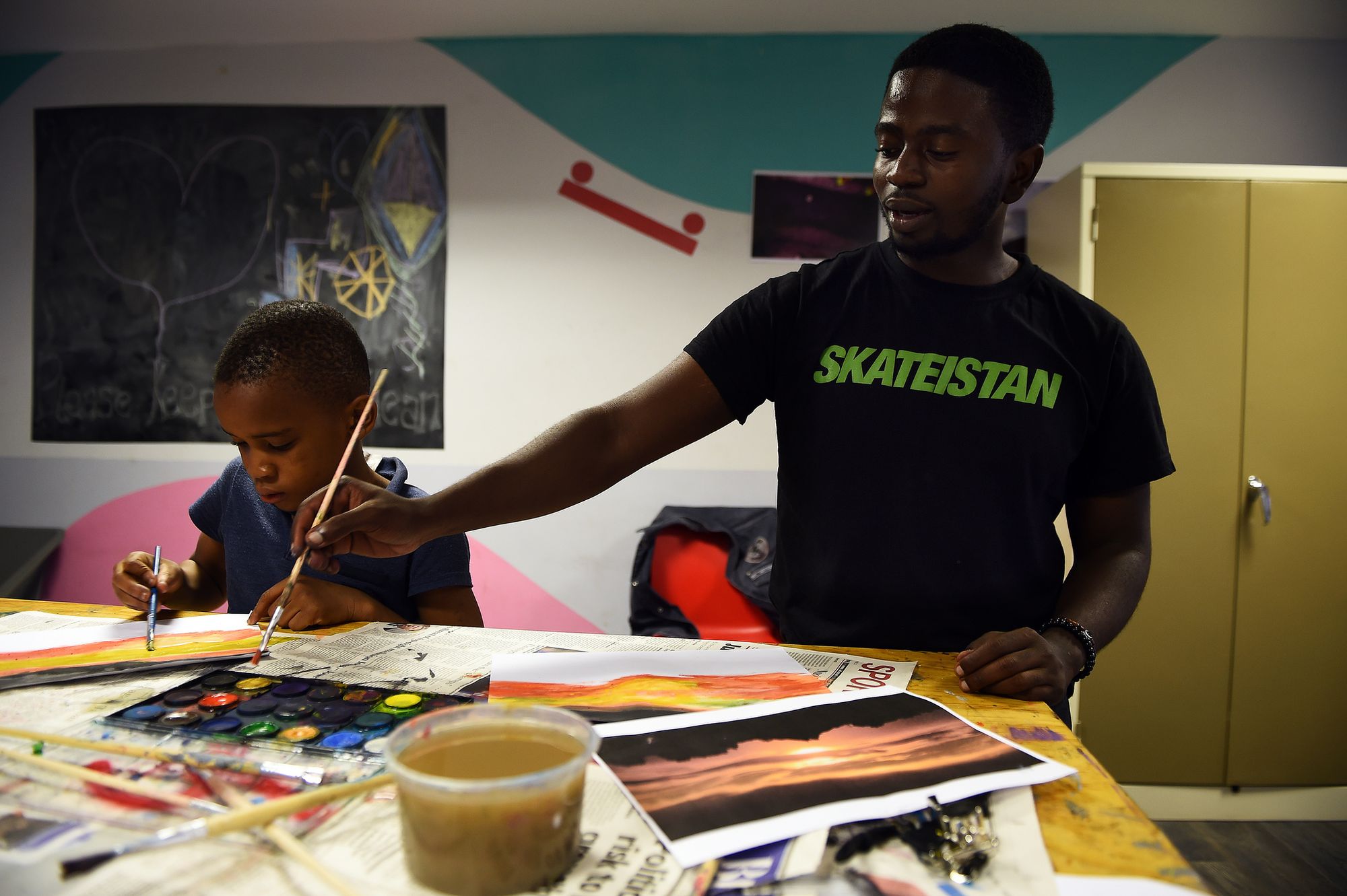
TOJ: Have you experienced any pushback from people who feel that Skateistan clashes with their cultural or religious values, especially in regards to traditional female roles?
"We have a community educator in every skate school."
Faulkner: We actually have super strong relationships with the communities where we work. That's a deliberate strategy for Skateistan, and we have a community educator in every skate school whose job it is to go out into the community to encourage children to join our programs, to encourage families to facilitate that, but also to work with community leaders. Obviously, in Afghanistan, that has a very religious overtone, so we work closely with the local mosques to explain our programs. We invite them to come and see what happens at Skateistan, and in turn that leads to them approving of all programs and telling people in the community that what we do is there is a good thing.
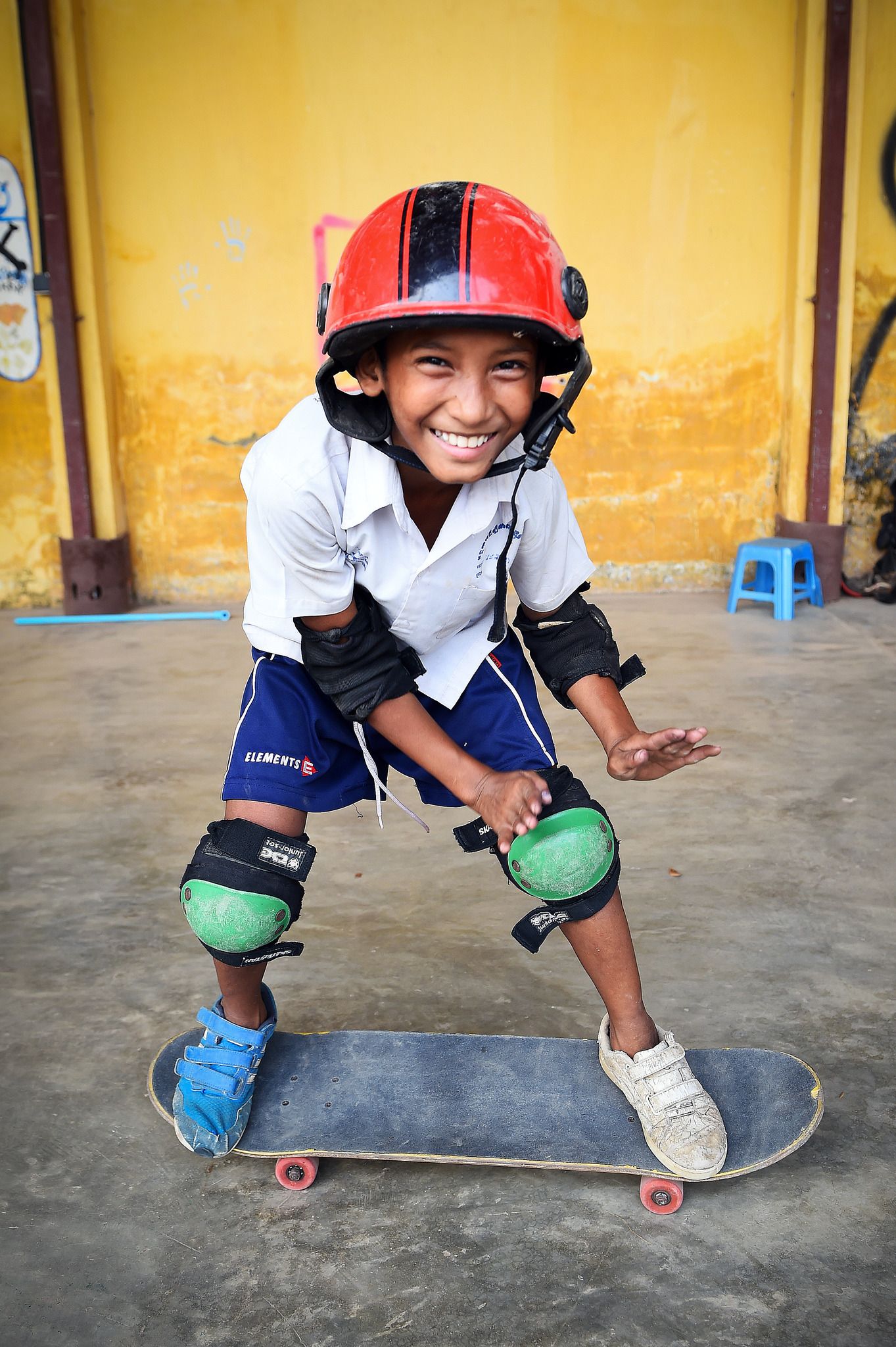
When we started out in Afghanistan, we didn't take any skateboarding culture with us. Olivier Percovich, who founded our organization and is still our Executive Director, didn't go with any cultural references in terms of skateboarding - no music or fashion, no magazines. He just wanted the children to experience skateboarding and the fun that he had experienced as a child doing that. In America and in Europe, skateboarding is sometimes seen as a male-dominated sport that is rebellious and even anti-social. We hope that that's changing. But actually, in Afghanistan, it’s not seen like that. It’s an activity that boys and girls do that is coupled with education.

TOJ: That's really interesting how skateboarding in a Skateistan program is separate from the stigma that skateboarders might have in the States where they’re some sort of “spray painting punk.”
Faulkner: It definitely does. The feedback from parents of our students in Afghanistan is that they tell us that their kids are behaving so much better since they started skateboarding, which is not exactly what you would expect in the Western world to be the association.
TOJ: As Skateistan has been going for over a decade now, have you been able to measure or witness the impact of its focus on gender inclusion in the communities by leading to more girls pursuing academic careers or jobs in places where they typically wouldn't even have a job?
“Our Back to School program has seen over 500 kids go on to formal education since we started it.”
Faulkner: In Afghanistan, where the gender issue is the most intense, we run a program called Back to School, which is an accelerated learning program for children who are out of school. A huge majority of children who are out of school in Afghanistan are female, which is partly to do with safety concerns about getting to and from school, but it's also to do with cultural norms around the importance of educating boys over girls. Our Back to School program has seen over 500 kids go on to formal education since we started it. These are kids who would have had no opportunity to go to school without that program. We cover three grades in the year and then they're ready to re-enter at the right levels for that age group.
Our own staff is 53% female and that's a deliberate decision. We believe in girls empowerment at all levels of our organization. We've seen a great increase in participation for girls as well. When we first started it was very challenging to get the same number of girls as boys to join as Skateistan students because of concerns around safety and because a sport wasn't seen as something that girls participate in. But now around 50% of our actual students are female and our participation is going up all the time.
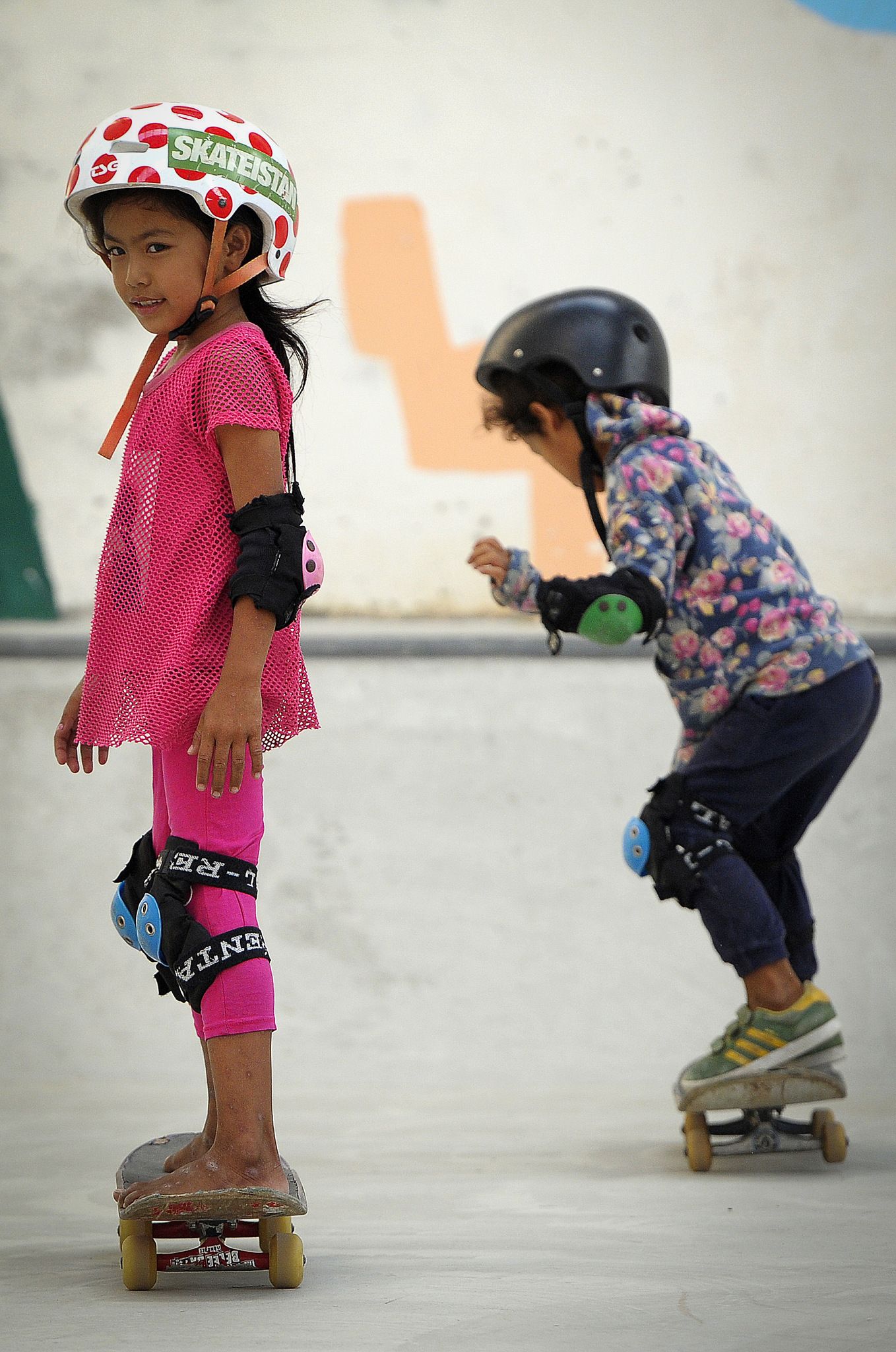
TOJ: Is the classroom curriculum a substitute for school or is it more of a supplement that gets kids prepared to go back to their full-time school?
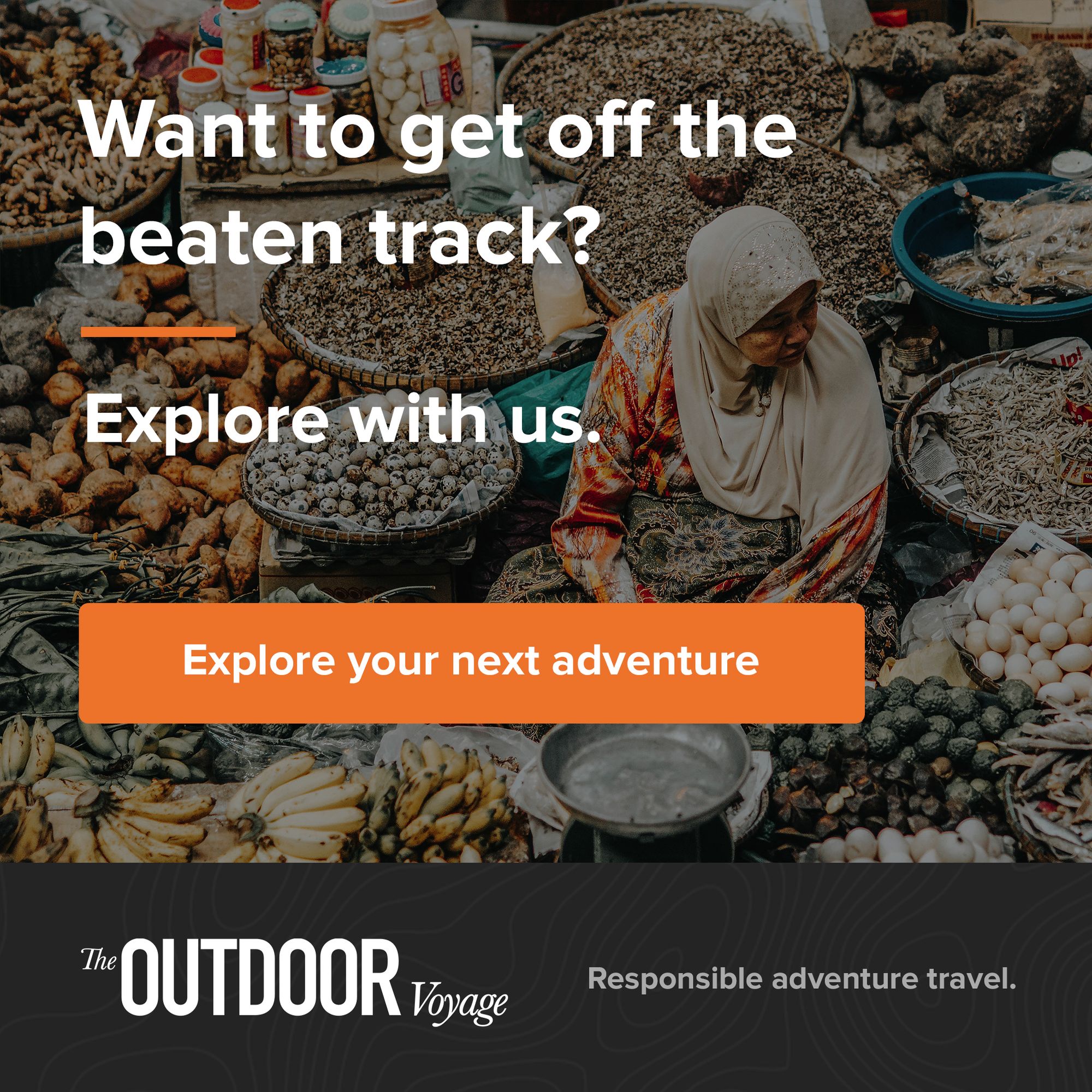
Faulkner: That really depends on the program. There's Back to School which is in Afghanistan and does follow the curriculum because it's recognized as an educational program by the Ministry of Education in Afghanistan and that allows children to get back into school. Our other main program is called Skate and Create and that's not a replacement to formal education. It's supplementary. It's focused on creativity and critical thinking and we aim to teach children things that they're not necessarily learning elsewhere. We teach things like human rights, we do a lot of arts and crafts, we teach life skills like resilience and determination and goal setting. We talk about what a country would look like if you could design it from scratch. We talk about the solar system and our place in it. So the idea of Skate and Create is to be adding value to children's existing education.
TOJ: How does Skateistan develop its educational curriculum, and how does the Good Push program work?
“We believe in girls empowerment at all levels of our organization.”
Faulkner: Good Push is a program that's run by Skateistan which is set up to build up the social skateboarding sector and support other skateboarding projects. The way that our curriculum intersects with Good Push has to do with the training that Good Push offers. For organizations that we're supporting through Good Push, we can share with them some of our lesson plans and ways that you can construct educational programming alongside skateboarding. We support other organizations who have taken inspiration from Skateistan by sharing the lessons that we've learned over the last 10 years so that they don't have to learn all the same things. But what we're aiming for with Good Push is that organizations will build something that is appropriate for them and the communities where they're working.
TOJ: What kind of changes have you noticed in your more than a year of working with Skateistan?
Faulkner: I think one of the really exciting things about Skateistan is that people are always really hungry to make things better. We don't always get everything right and we have to learn all the time. There is an unending appetite for improvement. Even just in the one year that I've been here, lesson plans, reporting and the community of people who support Skateistan are all increasing in quality. It’s a really inspiring place to work because you feel like you can innovate and know that your team will support you. If something doesn't work exactly as we thought it would, we don't necessarily see that as a failure. We share what we learned from it with other members of staff or even other organizations so that their learning curve is faster than ours.
https://www.youtube.com/watch?v=v_pDeWHgAkc
TOJ: What do you think are the biggest benefits of moving the Skatestan headquarters to Berlin, even though it's a long flight from each Skateistan facility?
Faulkner: It's very easy to work in Germany because it’s a very stable place and there are fewer day to day challenges. If your headquarters is in Kabul, you have daily electricity outages, major challenges around internet connectivity and it's very difficult to interact with our donors in particular. We're no longer an Afghan organization; we're now an international organization, which means that through our schools in Cambodia and Johannesburg, everybody's experiencing the same thing, and we’re able to react to the different contexts of our skate schools.
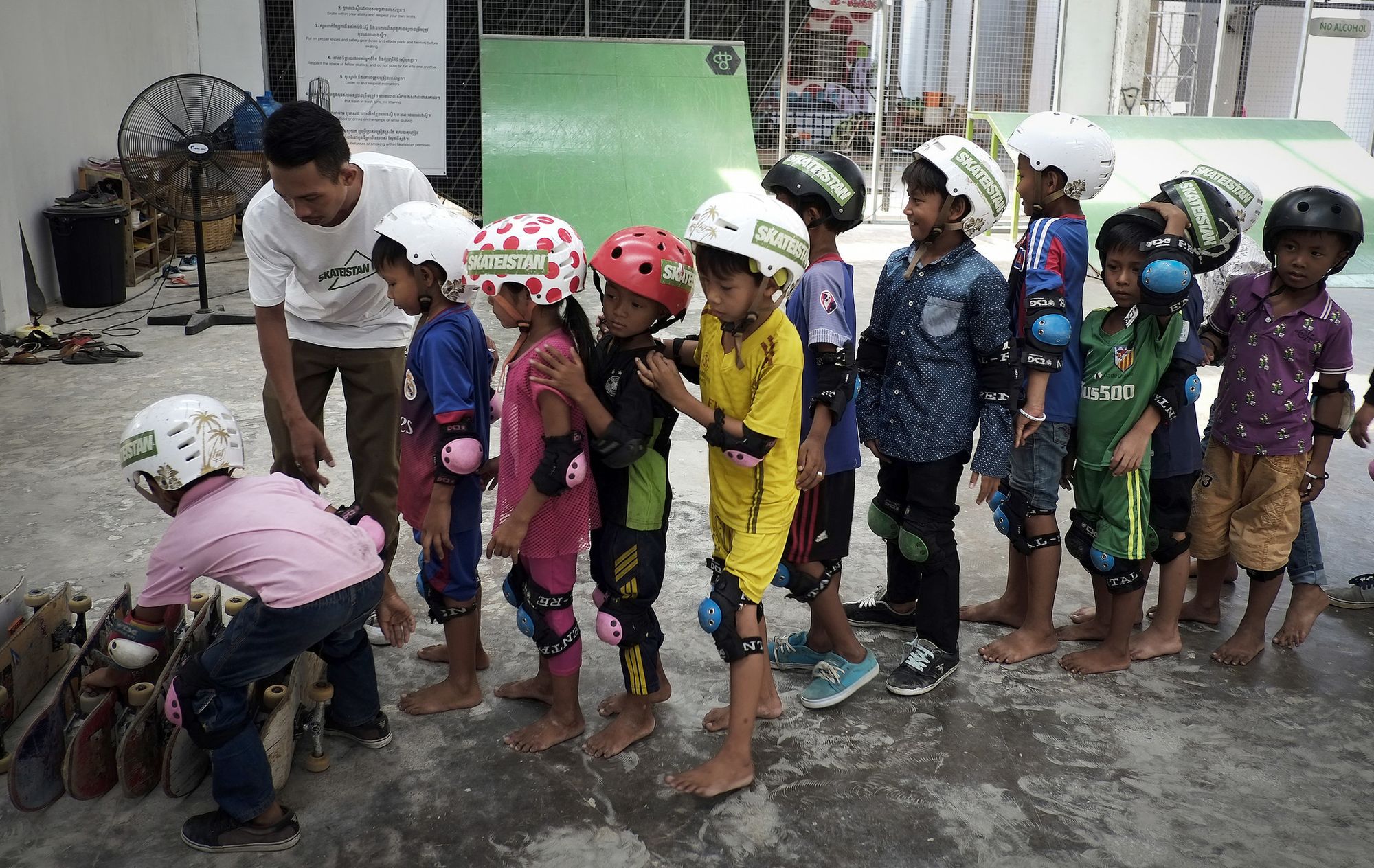
TOJ: Are you able to share any of the future plans that you have in store over the next 5 or 10 years?
Faulkner: Last year we published our strategy for the next five years and this year we recently had our strategic planning meeting when we made a plan for the next 10 years. At Skateistan, we’re trying to be very future-focused and very ambitious with what we can achieve over the next decade. We are currently working out a new state school, which will be our fifth skate school, in central Afghanistan, in Bamiyan. We're very excited about being able to extend the good work that Skateistan does to a whole new community.
We also are looking at opening a state school in Jordan in 2021, which will be a completely new area of the world for us, opening up in the Middle East. There's obviously been a huge number of young people affected by the conflict in Syria in the last few years and we're really excited about being able to provide something in particular for a refugee population.
Even longer term, we would love to expand to South America, but that's very much a twinkle in our eye right now rather than a concrete development.
TOJ: I notice some similarities between Skateistan and another NGO called Waves for Change. And I think you even did a crossover event. The main concept is creating a safe space for children from underprivileged areas where they can talk about violence that they face in their community. Do you have any programs aside from school curriculum that offer kids a place to talk about the issues that they're facing in their life?
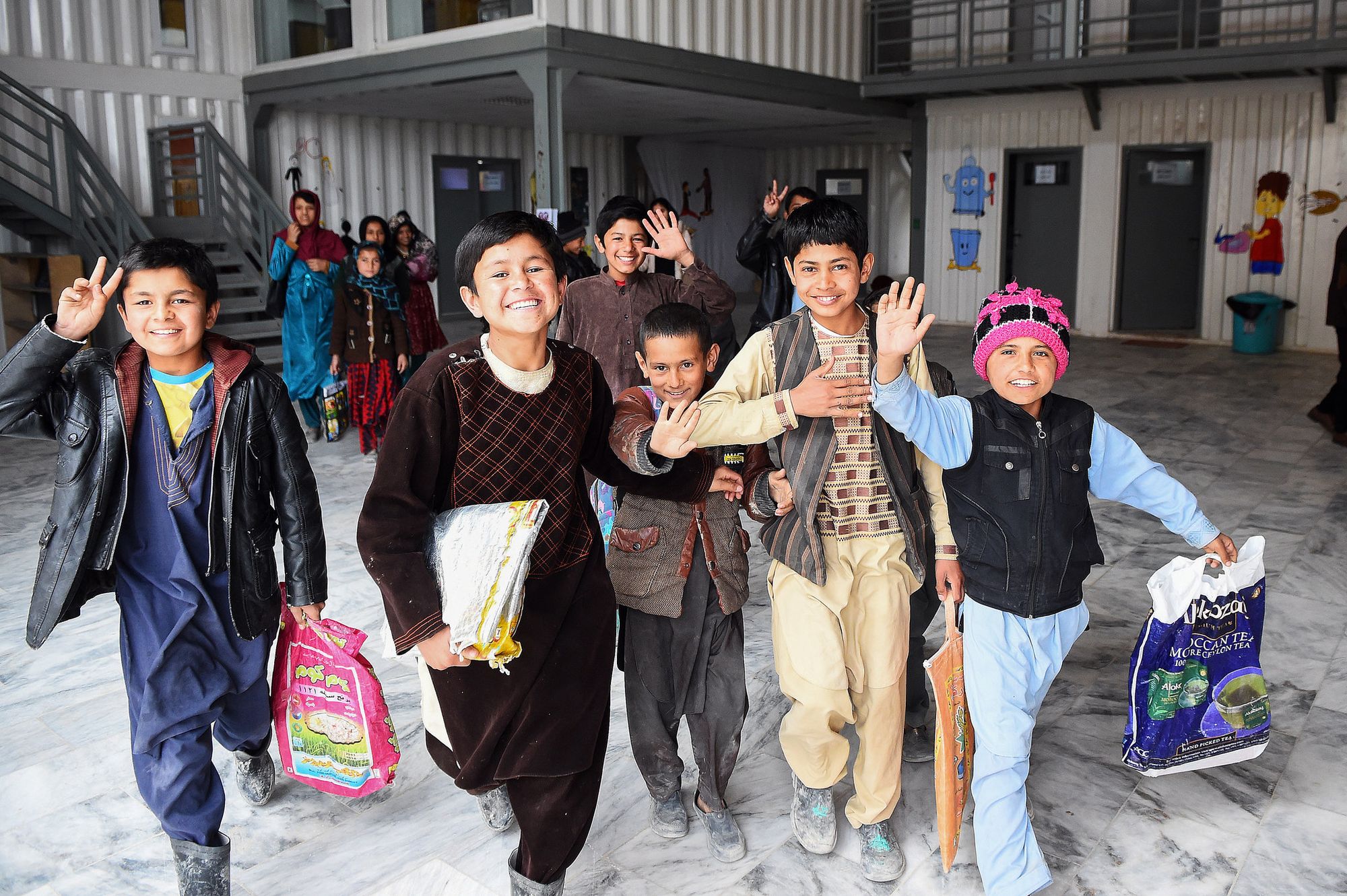

Faulkner: Yeah, we do. It's nice that you bring up Waves for Change because we’re huge fans of Waves for Change. They do amazing work, and we see a lot of synergies between what we do and what they do. We do offer a safe space for kids and we maintain quite a holistic approach to children and the challenges that they're facing. The core programming might be an hour of skateboarding and an hour of education, but we also provide plenty of safe space for children to work through any issues that they might be having. When I mentioned earlier about our local teams trying to be responsive to the needs that they see in the community, that's really where that comes into play. If our staff in Cambodia see that there's a real risk of the children becoming exposed to violence or if they’re experiencing violence in their homes, then they'll do a workshop to help children work through that. They've also done some really interesting programming around trafficking and around navigating danger in those kinds of areas. Our community educators play a really important role there as well because they are likely to get to know families and understand the dynamics of certain families in what might be happening in children’s home lives.
We’re also were working alongside a fantastic organization in Canada called Hull Services. They're based in Calgary and they do a lot of trauma-informed care for children who've been affected by serious trauma. One of the things that they do is investigating the power of skateboarding for children in their program. We’re doing some training with them about becoming trauma-informed ourselves as a staff so that we can respond to the problems and the challenges that our students bring to us.
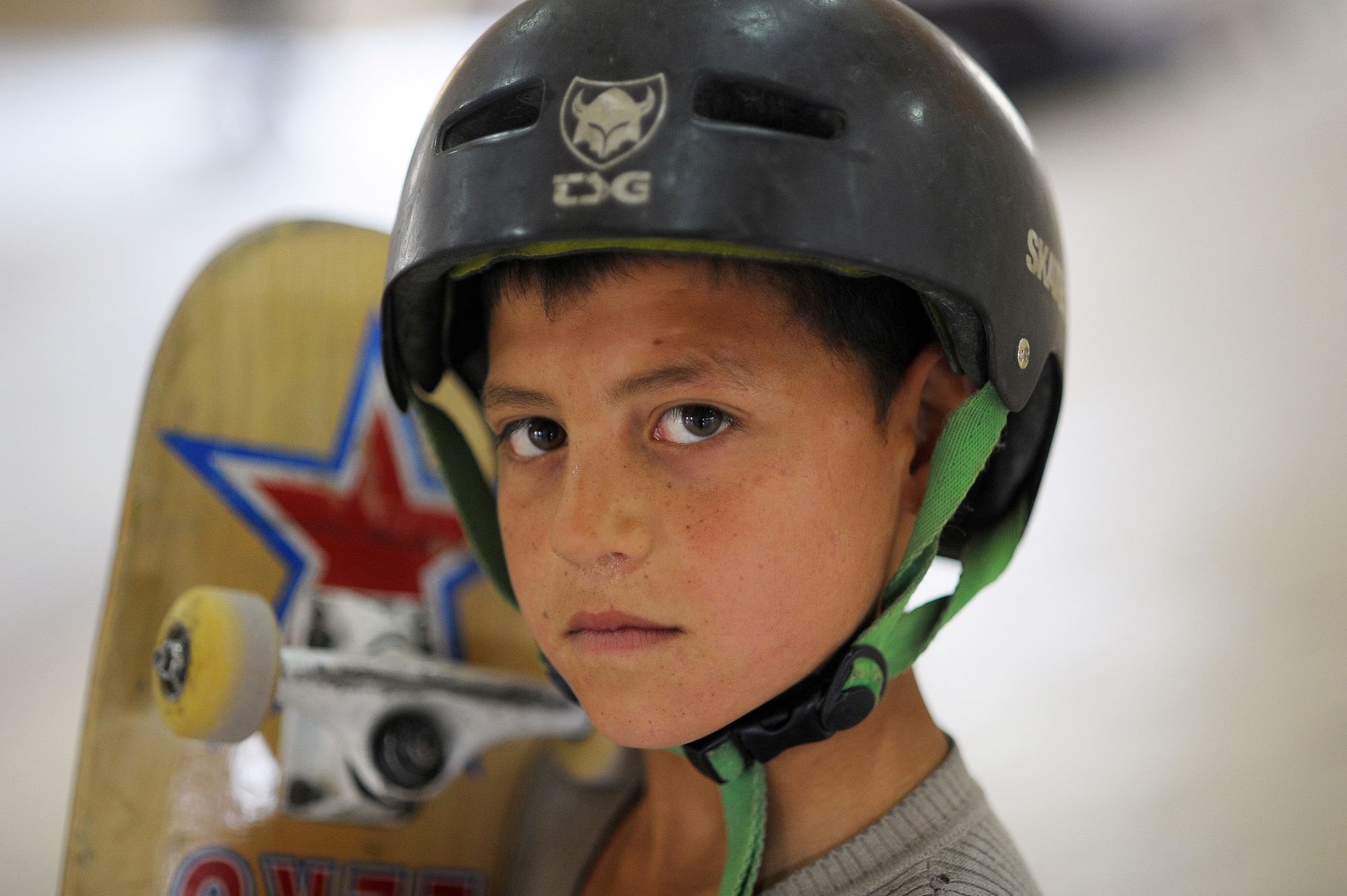
TOJ: For someone who watches one of the Youtube videos or reads this article, what's the best and quickest way they can get involved?
Faulkner: Go to Skateistan.org. You can make a donation right there and you can join our citizens. You can find out more about what we do, and also if you find stuff that you like about us, then it's great to share that because we're always looking for ways to spread the word.
Read Part 1: Skateistan: How Skateboarding is Changing the Story for Kids in Need
Visit www.skateistan.org for more information, or follow Skateistan on social media:
Instagram: @skateistan
Facebook: @skateistan
Twitter: @skateistan
Feature Image: Andy Buchanan
The Outdoor Voyage booking platform and online marketplace only lists good operators, who care for sustainability, the environment and immersive, authentic experiences. All listed prices are agreed directly with the operator, and we promise that 86% of any money spent ends up supporting the local community that you’re visiting. Click the image below to find out more.

2nd best newsletter in the universe